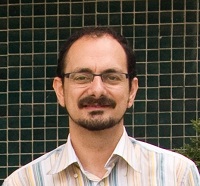Unlike popular belief, music is not a universal language. The musical diversity, different sound expressions and conceptions of sound between different human societies can difficult the rapprochement between cultures.
Next March 5 at CosmoCaixa, the director of the Museum of Music Barcelona, Jaume Ayats, proposes a musical journey through distant and unknown music to better know our social ear and its importance to relate to people and the world .
The talk “The perplexities of the musical trip” is part of the lecture series “The music and its impact on the body and mind” organized by the Obra Social “la Caixa” and the IDIBELL under the coordination of Antoni Rodríguez-Fornells (IDIBELL-ICREA-UB)
During the talk, Ayats will accompany us on a musical journey through different cultures and musical expressions far from our usual expectations to be aware of our social ear and its importance for understanding other cultures, thus facilitating the relationship between people from different backgrounds and also with the world around us.
Jaume Ayats a musician and professor of ethnomusicology at the Autonomous University of Barcelona, is a professor of violin at the Conservatory of Music of Barcelona and the current director of the Museum of Music in Barcelona.
He has also studied ethnomusicology at l’Ecole des Hautes Etudes en Sciences Sociales in Paris. He wrote his doctoral thesis on the sound expression of the crowds in the European urban world music and he has investigated catalan oral music with the Research Folk Group of Osona.
Lecture
The lecture series “The music and its impact on the body and mind” is organized by the Obra Social “la Caixa” and the Bellvitge Biomedical Research Institute (IDIBELL). The sessions will take place in CosmoCaixa Barcelona from January 31 to June 4, and will bring together internationally recognized experts like Steven Mithen, Sandra Trehub, Eckart Altenmuller, Jaume Ayats, Emmanuel Bigand and Josef Rauschecker. The series is coordinated by ICREA researcher at IDIBELL and the University of Barcelona, Antoni Rodriguez-Fornells.
The activity aims to understand an amazing cultural phenomenon of our species: the music. The conference will discuss the origin of music and how it has evolved, from the time that one of our ancestors first built a flute to start producing the first sound, approximately 40,000 years ago, to the latest musical and technological transformations. The questions that arise about the music are numerous, from how to develop musical skills in babies to the common features of those with a talent for this art.
In fact, understanding music, their relationship and impact on our body through the expression of emotions, its value as a social and communication link, its evolution over time, history and cultural expressions, “will allow us to better understand where we are going in this area, both to understand future musical expressions to know why music is used in different contexts healing in many cultures”, explains Antoni Rodriguez-Fornells. The coordinator of the lecture series, group leader at the IDIBELL and UB Group of Cognition and Brain Plasticity, notes “the ability of music to stimulate brain plasticity and may contribute to the reorganization of neural circuits”.

